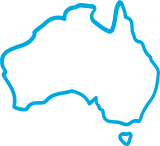
In today’s job market, employers are looking for candidates with a mix of hard skills, soft skills, and increasingly, hybrid skills. But what do these terms mean, and why are they important?
Hard Skills
Hard skills are measurable, job-specific abilities that require knowledge and training. They’re often gained through education, courses, or on-the-job experience.
Examples include:
- Technical skills like coding or welding
- Qualifications such as certificates or degrees
- Industry-specific knowledge
Hard skills usually define a role and are often the first thing employers look for when hiring.
Soft Skills
Soft skills are personal attributes and behaviours that help you succeed at work. They complement hard skills and are transferable across industries, making them essential for career growth.
Employers value soft skills because they influence teamwork, communication, and adaptability. In fact, when candidates have similar hard skills, soft skills often make the difference.
Top Five Soft Skills Employers Look For
- Creative Thinking – Finding new ways to solve problems or improve processes.
- Active Listening – Paying full attention to what others are saying and understanding non-verbal cues.
- Time Management – Staying organised, punctual, and respecting others’ time.
- Cooperation – Working well with others and adapting to different working styles.
- Patience – Staying calm under pressure and developing thoughtful solutions.
Tip: Highlight these skills in your resume and cover letter. Employers often look for them when deciding between candidates.
Hybrid Skills
Hybrid skills combine two or more technical skill sets, often blending digital expertise with traditional roles. With technology reshaping workplaces, hybrid skills are in high demand.
Examples of hybrid skill areas include:
- Data analysis and business strategy
- Design and software development
- Sales combined with digital marketing
- Compliance paired with emerging technologies
Employers value candidates with hybrid skills because they bring versatility and adaptability to changing job requirements.
Expanding Your Skill Set
Job roles are becoming more flexible, and sticking strictly to a job description is no longer enough. Employers want people who can adapt and learn new skills as business needs change.
This means:
- Being open to upskilling through courses and training
- Staying current with technology and industry trends
- Taking advantage of learning opportunities offered by TAFE, universities, and training providers
One qualification at the start of your career won’t set you up for life. Continuous learning is key to staying employable.
Why It Matters
Whether you’re applying for your first job or planning a career change, understanding hard, soft, and hybrid skills will help you stand out. Show employers the full range of skills you bring, and keep building on them to stay ahead.
You may also like

How to manage your nerves in a job interview
Let’s face it, job interviews can be nerve-racking. […]

Getting Career Ready for 2026
If you’re thinking about putting your job search […]
 Skillset would like to acknowledge and pay respect to the traditional custodians of the lands on which we work.
Skillset would like to acknowledge and pay respect to the traditional custodians of the lands on which we work.We are honoured to be on the ancestral lands of those whose cultures are among the oldest living cultures in human history. We pay respect to the Elders, past, present and to the younger generation of the community who will be the future leaders in years to come.

